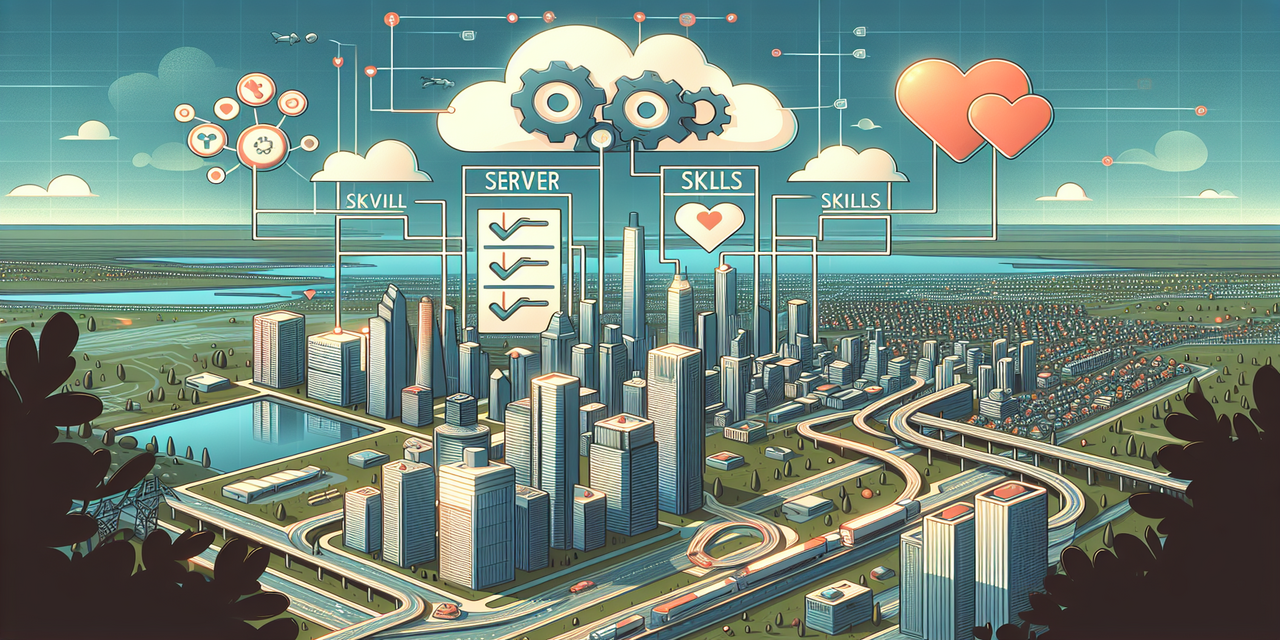Server Skill Checklist: Key Takeaways
- Successful servers combine technical skills like POS proficiency and menu knowledge with excellent customer service abilities.
- Soft skills such as communication, time management, and resilience are crucial to handle busy shifts and customer interactions.
- Continuous learning of food safety, beverage expertise, and problem-solving elevates service quality and guest satisfaction.
Mastering both technical and interpersonal skills is essential for servers aiming to thrive in the competitive restaurant industry.
This checklist outlines the key competencies required to excel in a server role and deliver outstanding dining experiences.
1. Technical Skills Needed for Servers
Technical skills form the backbone of efficient restaurant service. Being proficient in these areas enables servers to perform their duties with accuracy and speed.
POS System Proficiency for Servers
Servers must be adept at using Point-of-Sale (POS) systems to enter orders, manage payments, and coordinate table assignments. This skill reduces errors and streamlines workflow, enhancing overall efficiency.
Check out mastering restaurant POS system training for effective ways to improve this crucial skill.
Menu Knowledge and Ingredient Awareness
Thorough familiarity with menu items, including ingredients, preparation methods, and allergens, empowers servers to answer customer questions confidently and make appropriate recommendations, improving guest satisfaction.
Food Safety and Hygiene Practices
Servers are responsible for upholding hygiene standards and adhering to food safety regulations. Proper practices protect customers' health and help maintain the restaurant’s reputation for quality and safety.
Learn more about hygiene in hospitality to maintain high standards.
Beverage Service Expertise
Knowledge of a wide range of beverages, from wines to cocktails, allows servers to enhance the dining experience and boost sales through informed upselling and pairing suggestions.
Explore key insights on basic wine knowledge for servers and how it can improve your beverage expertise.
Basic Math and Cash Handling Skills
Accurate calculation of bills and careful cash handling are essential to prevent financial mistakes and ensure smooth payment transactions.
Implement strategies from restaurant cash flow guides to manage payments effectively.
2. Essential Soft Skills for Restaurant Servers
Soft skills enable servers to interact effectively with guests and colleagues, manage stress, and provide a memorable dining experience.
Effective Communication Skills
Clear communication helps ensure orders are correctly understood and delivered while facilitating teamwork among restaurant staff.
Active Listening to Customer Needs
Listening attentively to guests’ requests and concerns allows servers to meet expectations and proactively resolve issues.
Customer Service Orientation
Demonstrating dedication to guest satisfaction by addressing complaints gracefully and going the extra mile encourages repeat business and positive reviews.
Teamwork and Collaboration in the Restaurant
Cooperating with kitchen staff and fellow servers ensures efficient service flow and a positive work environment.
Learn how managing servers in a restaurant can improve teamwork and overall service quality.
Time Management and Multitasking
Balancing multiple tables, prioritizing tasks, and maintaining high service standards during peak hours is key to managing pressure and delivering quality service.
Problem-Solving Skills for Servers
Quickly addressing issues like order mistakes or customer complaints demonstrates adaptability and commitment to service excellence.
Understanding strategies for handling customer complaints can enhance problem-solving skills for servers.
Patience and Resilience in Challenging Situations
Maintaining professionalism under pressure or when encountering difficult customers fosters a calm and welcoming atmosphere.
Attention to Detail in Restaurant Service
Ensuring accuracy in orders and table settings enhances the guest experience and prevents errors that could detract from satisfaction.
3. Why Both Technical and Soft Skills Matter for Servers
Technical skills ensure the logistical side of service runs smoothly; however, soft skills shape the guest experience and foster team dynamics.
Servers who can balance system proficiency and customer interaction excel in delivering efficient, warm, and attentive service.
Developing these complementary skills creates a versatile professional capable of adapting to diverse restaurant environments and customer needs.
4. How to Develop Server Skills Effectively
Continuous learning and practice are vital. Here are some strategies to build and strengthen skills:
- Seek formal training on POS systems and food safety certifications.
- Study the menu in detail and ask chefs or managers about dish preparation and ingredients.
- Practice active listening and communication with coworkers and guests.
- Request feedback from supervisors or experienced servers to improve service techniques.
- Engage in role-playing scenarios to enhance problem-solving and patience.
- Prioritize tasks during shifts and reflect on time management at the end of each day.
Explore tips on how to train restaurant servers effectively to accelerate skill development.
5. Resources to Help Servers Enhance Their Skills
Several organizations provide valuable training and certification programs that can boost a server’s technical and soft skills:
- U.S. Department of Labor – Occupational Outlook for Food and Beverage Serving and Related Workers
- National Restaurant Association – Training and Certification Programs
- ServSafe – Food Safety Training and Certification
Server Skill Checklist: Conclusion
Excelling as a server requires a balanced mastery of technical competencies such as POS operation, menu knowledge, and food safety, alongside vital soft skills including communication, patience, and teamwork.
Developing this comprehensive skill set allows servers to provide seamless service, resolve challenges gracefully, and create exceptional dining experiences that encourage customer loyalty.
With commitment to continuous improvement and utilizing available training resources, servers can elevate their careers and positively impact their workplace.
For more insights into building your restaurant career, visit our restaurant positions descriptions highlight.

.webp)
.webp)

